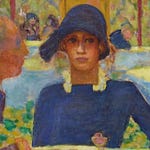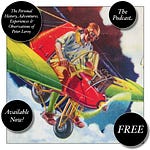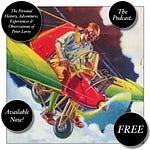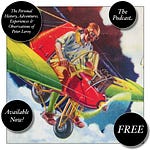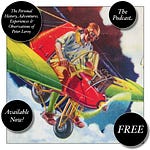My immediate problem, as I now see it, was that I had acquired over the years a number of overly simple ideas, ideas based on a view of the surface of things only, and they had become too firmly rooted in my mind—the solar-system model of the atom, for example, and the sectioned-map view of social boundaries, that sort of thing. Miss Rheingold’s asking where I stopped marked the point in my education when I was first asked to think for myself. My mind was fertile, friable soil. New ideas were quick to root, and I was still at an age when old ones were fairly easy to uproot. Miss Rheingold’s question had begun to tug at the simple old ideas. It hadn’t yanked them out yet, but it had loosened them a bit.
I had a hard time keeping my attention focused on the question, though. I was alone in the library, of course. Need I tell you how distracting it is to be alone in a library? Unwatched, you must struggle continually against satisfying your curiosity about newts, heraldry, the merengue, combination locks—everything but the topic that brought you there.
Most of the books were not yet shelved. They were stacked and heaped here and there, on tables, window sills, chairs, and even on the floor, piles and pillars of new books. The appeal of books in a jumble, encountered at random, not shelved by topic and author, is enormous, far stronger than the appeal of books in ranks and categories. When picture books and gazetteers lie in a hodgepodge with poems, novels, handbooks of upholstery instruction, and photographic collections of examples of taxidermy, they make a rich, intriguing mix, something like gumbo or bouillabaisse, a stimulating concoction, a much richer and more intriguing mix than the array in the categorized sections of the library, where distinctions are made that wouldn’t allow so many diverse and tasty things in the same pot. Those distinctions inhibit the browser, I think, and eliminate some of the potential pleasure of browsing. The gain from categorizing is order, but the loss is surprise.
Whenever I enter a library now I head first for the rack of new books, where some of the pleasure of the jumble still exists, before the books are made to quit the happy mix and dwell with their own kind. Having come in search of the latest biography of Wittgenstein, I’m as likely to leave with a treatise on the tube worms that dwell near thermal vents at the deepest points on the ocean floor.
That, however, is now. At the time I’m recalling, all that jumble and all those questions were more than my ten-year-old’s mind could handle. There were just too many questions to answer, and the questions were radically different from the questions I was used to. Miss Rheingold wanted me to find an answer that wasn’t obvious, that might not even exist. In the past, I had only been asked to find answers that were already highlighted for me. The feeling that there were too many questions and that I had to find answers where there might not even be any was new and unsettling, but it was only a foretaste of a feeling that would return, again and again, as a feature of adult life.
[to be continued]
In Topical Guide 588, Mark Dorset considers Ideas: “Overly Simple” and Curiosity: Objects of One’s from this episode.
Have you missed an episode or two or several?
You can begin reading at the beginning or you can catch up by visiting the archive or consulting the index to the Topical Guide. The Substack serialization of Little Follies begins here; Herb ’n’ Lorna begins here; Reservations Recommended begins here; Where Do You Stop? begins here.
You can listen to the episodes on the Personal History podcast. Begin at the beginning or scroll through the episodes to find what you’ve missed. The Substack podcast reading of Little Follies begins here; Herb ’n’ Lorna begins here; Reservations Recommended begins here; Where Do You Stop? begins here.
You can listen to “My Mother Takes a Tumble” and “Do Clams Bite?” complete and uninterrupted as audiobooks through YouTube.
You can ensure that you never miss a future issue by getting a free subscription. (You can help support the work by choosing a paid subscription instead.)
At Apple Books you can download free eBooks of Little Follies, Herb ’n’ Lorna, and Reservations Recommended.
You’ll find overviews of the entire work in An Introduction to The Personal History, Adventures, Experiences & Observations of Peter Leroy (a pdf document) and at Encyclopedia.com.





